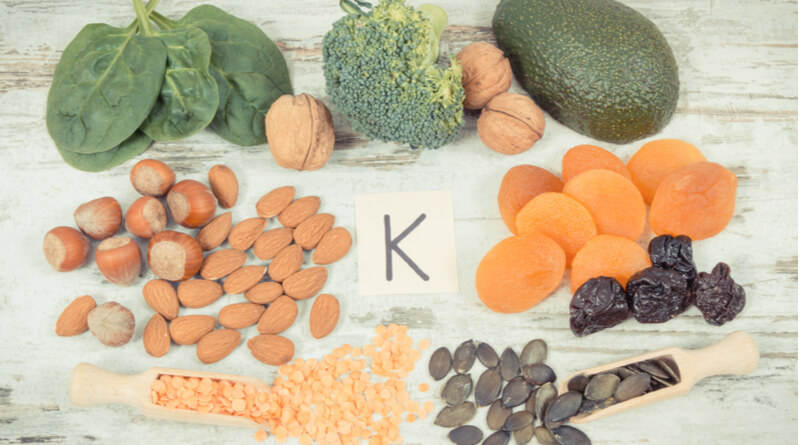Vitamin K is an umbrella term that refers to an entire group of fat-soluble vitamins that play a major role in blood clotting, regulating blood calcium levels, and bone metabolism. Your body uses vitamin K to produce a protein known as prothrombin, which has a clotting factor that plays a vital role in bone metabolism and blood clotting. It is overall pretty rare for a person to experience a vitamin K deficiency, but it does happen, and the consequences can lead to serious trouble. In the most severe cases, a vitamin K deficiency can cause an increase to clotting time, hemorrhaging, and excessive bleeding.
Are You Getting Enough Vitamin K in Your Diet?
Your body does not produce vitamin K on its own; you have to obtain it via your diet. There are two types of vitamin K: vitamin K1, known as phylloquinone, and vitamin K2, known as menaquinone. The former is the most prevalent type of vitamin K and comes from plants, while the latter is much less prevalent and stems from animal-based foods and fermented foods.
Without enough vitamin K, the human body cannot produce prothrombin properly, which affects the body’s blood clotting factor. If your blood is failing to clot in a reasonable time, then it might be due to a vitamin K deficiency.
Best Vitamin K Laden Foods
The best source of vitamin K tends to be dark, leafy, green veggies:
- Kale
- Mustard Greens
- Swiss Chard
- Collard Greens
- Natto
- Spinach
- Broccoli
- Brussels Sprouts
After green veggies, the next best source of vitamin K tends to be animal organs:
- Beef Liver
- Pork Chops
- Chicken
- Goose Liver Paste
The best sources of vitamin K after that are fruits and dairy products:
- Prunes
- Kiwi
- Soybean Oil
- Hard Cheeses
- Avocado
- Soft Cheeses








